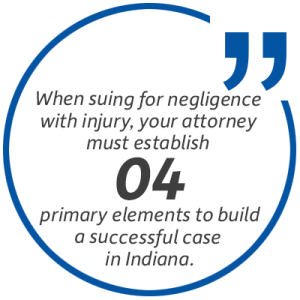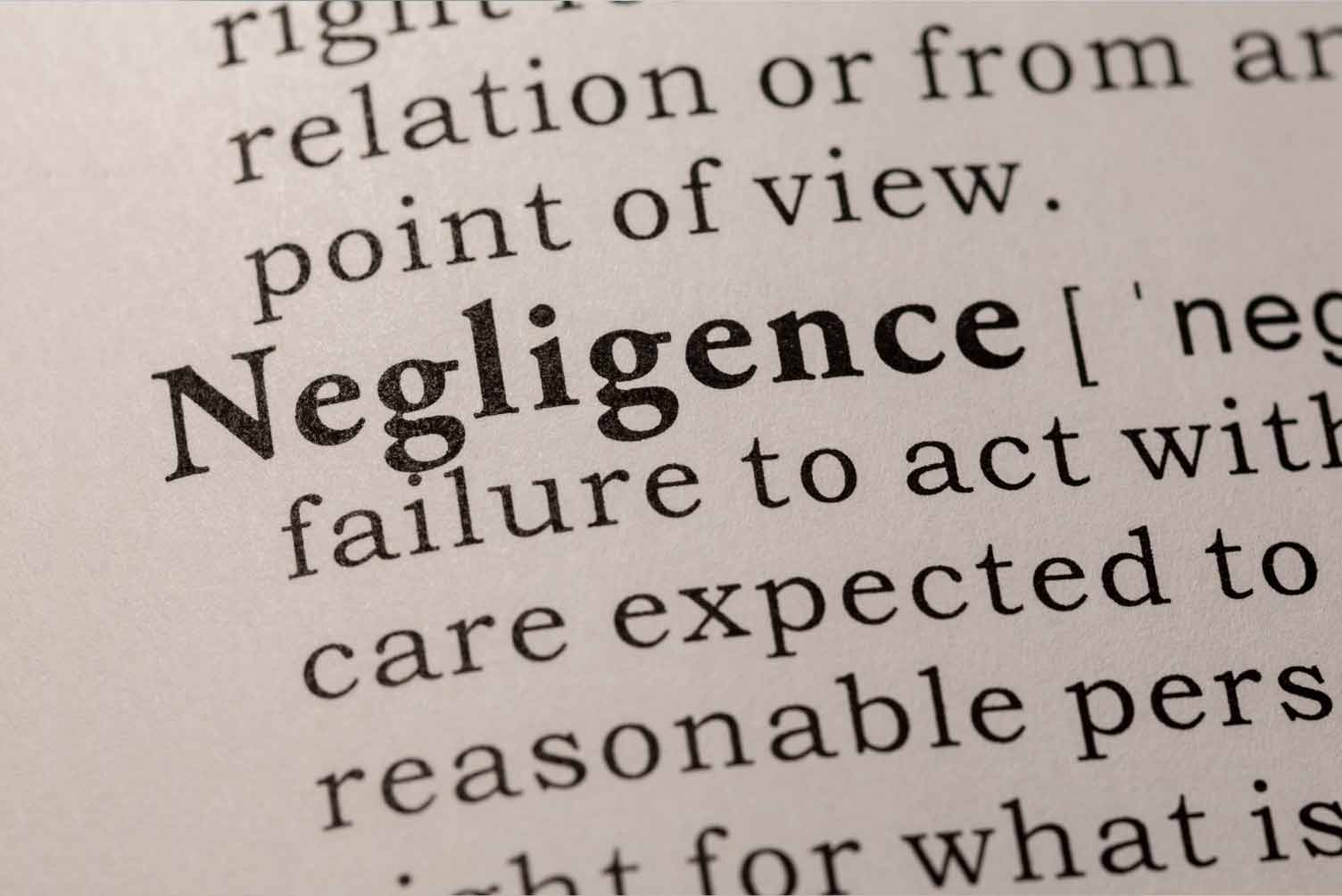In Indiana, the framework of negligence law is built upon specific rules and principles that guide compensating individuals who have sustained personal injuries due to negligence. Understanding these laws is imperative if you’re contemplating suing for negligence with injury. This blog explains key elements of Indiana’s negligence and personal injury laws and why an experienced personal injury attorney is the best way to protect your rights.
What is Negligence?
In personal injury law, negligence is a fundamental legal concept that holds individuals and entities accountable for the harm caused by their failure to exercise reasonable care. In this context, reasonable care refers to actions that a prudent person would undertake under similar circumstances to prevent harm to others. In Indiana, individuals who sustain injuries due to someone’s negligence can sue for negligence and seek compensation for the damages incurred.
Key Elements of Negligence and Personal Injury
When suing for negligence with injury, your attorney must establish four primary elements to build a successful case in Indiana:

- Duty: The first element requires demonstrating the defendant owed a duty of care to the injured party. This duty may take the form of a general obligation to exercise reasonable care or a specific duty arising from the circumstances of the case.
- Breach of Duty: The second element requires proving that the defendant failed to fulfill their duty of care. A breach occurs when someone does not act in a manner consistent with what a reasonably prudent person would do under similar circumstances.
- Causation: Causation entails proving a direct link between the defendant’s breach of duty and the plaintiff’s injury. In simpler terms, the injury must directly result from the defendant’s negligent actions.
- Damages: The final element demands demonstrating that the plaintiff suffered actual damages due to the defendant’s negligence. These damages can encompass economic aspects, such as medical bills or lost wages, as well as non-economic aspects, like pain and suffering.
Comparative Negligence in Indiana
Indiana employs a system of comparative fault, commonly called the “51% fault rule.” When the plaintiff and the defendant share some degree of fault for the injury, the court is responsible for determining the respective proportion of fault for each party involved. If the plaintiff’s degree of fault is 50% or less, they retain the right to seek damages, although the amount awarded will be adjusted according to their level of responsibility.
Understanding this concept is crucial, as defendants in personal injury cases often challenge the lawsuit by saying the plaintiff’s actions contributed to the accident. When suing for negligence with injury, a seasoned personal injury attorney with the expertise to navigate the intricacies of comparative negligence in Indiana will help you fight for the compensation you deserve.
Statute of Limitations for Personal Injury Claims
Indiana’s statute of limitations for most personal injury cases is two years. This regulation dictates that you generally have a two-year window from the date of the injury to initiate a lawsuit. Failure to meet this deadline can result in your claim being barred, thereby forfeiting your right to seek compensation for your injuries.
Why You Need Legal Guidance
Pursuing a lawsuit for personal injury negligence with injury is a complex legal process that necessitates a profound understanding of Indiana’s negligence laws. Engaging an experienced personal injury attorney is invaluable when navigating these laws and striving for equitable compensation for your injuries. Our attorneys will gather evidence, negotiate with insurance companies, and build a compelling case that supports your claim.
The successful establishment of the four core elements of negligence—duty, breach of duty, causation, and damages—is pivotal when you sue for negligence. Additionally, awareness of the statute of limitations is indispensable, as missing the filing deadline can lead to the forfeiture of your legal rights.
Crossen Law Firm – Indianapolis Personal Injury Lawyers
Crossen Law Firm is highly experienced in Indiana negligence and personal injury cases. We are here to provide the guidance and support required to safeguard your rights and help you get the compensation you deserve. Contact our team today for help with your Indiana personal injury and negligence case-317-401-8626.

 317-401-8626
317-401-8626 
.jpg)